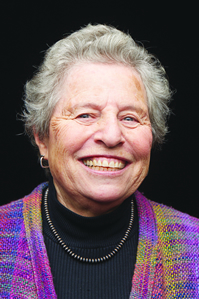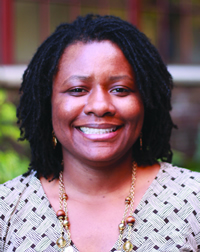There was a time when what passed for arthritis patient education was the clinician simply telling the patient about the condition.

But best practice today means engaging patients and giving them the tools to manage their symptoms on their own, said Kate Lorig, DrPH, Director of the Stanford Patient Education Research Center and Professor of Medicine in the Stanford School of Medicine.
Dr. Lorig will highlight the past, present, and future in patient education during the Tuesday morning concurrent session ARHP Daltroy Memorial Lecture: Arthritis Self-Management — Where We Have Been and Where We Are Going?
“People with arthritis live 99 percent of the time outside of the health care system,” she said. “And what they do in that time largely determines both the course of their arthritis and their quality of life.”
One of the most important strategies for clinicians calls for imbuing the patient with the confidence that they can manage their symptoms on their own, Dr. Lorig said, and one way to do that is to help the patient reinterpret their symptoms.
For instance, Dr. Lorig said, arthritis patients may avoid exercise, believing it will just add to their pain. She and her colleagues tell patients that the most dangerous exercise is no exercise at all and that the best way to tell if they are overdoing it is if there is more pain after they exercise than there was beforehand.
“And so what we are doing is helping them reinterpret from, ‘I am going to hurt myself if I exercise,’ to, ‘I am going to hurt myself if I don’t exercise. I need some skills to do it safely,’ “ she said.
Some of Dr. Lorig’s earliest research, stretching back nearly four decades, illustrated the disconnect between patients and physicians when it’s a one-way street of the doctor talking at a patient instead of with them.
She asked both patients and rheumatologists: What do you think about when you think about arthritis? Pain and disability topped the list for both groups. But patients identified depression as a third concern, while doctors identified disfigurement.
One of the questions now emerging is whether practitioners need to provide disease-specific education or whether it might be more efficient to develop general recommendations that are applicable across many chronic conditions.
Most people with arthritis are dealing with several chronic illnesses, Dr. Lorig noted, and virtually all the self-management advice given to arthritis patients is no different than the tips provided to people managing conditions such as heart disease or chronic obstructive pulmonary disease.
“We have actually done a series of experiments looking at arthritis-specific vs. generic education for people with chronic illness, and for people with arthritis, the outcomes are exactly the same in both programs,” she said.

The benefits of developing general chronic disease education include adding efficiencies to the health care system and being more respectful of patients’ time. Dr. Lorig said that the issue now is developing a common understanding and label for the notion of general chronic disease education.
Session moderator Hazel L. Breland, PhD, OTR/L, Assistant Professor and Academic Fieldwork Coordinator in the Department of Health Professions at the Medical University of South Carolina, said she expects attendees will leave the session with some immediate takeaways that they can implement in their practice, along with an appreciation that the patient of today is much more educated about their condition than the patient of yesterday.
“A big part is helping patients to know that really they are an expert at the table as well because they live with arthritis every day,” Dr. Breland said. “So while we have the clinical expertise, they have the lived experience, and then it’s just a matter of putting those together.”


